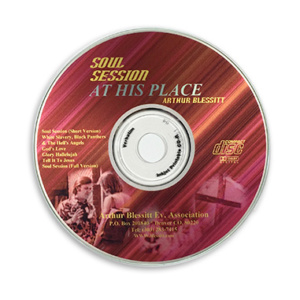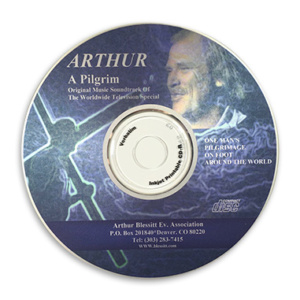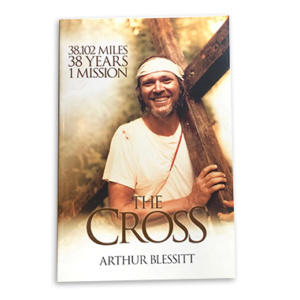A NIGHT TO REMEMBER
The sound is jackhammer-loud. A jackhammer for Jesus. It is the crashing gospel rock that slams and ricochets off the walls, searching for escape. But the sound is prisoner, captured for Christ.
Our flock grooves on it. It’s all part of the His Place scene. Each time the door to His Place swings open the blast of music is a siren call to the kids. Tonight the leitmotif, played on and off throughout the evening, is “Tell It to Jesus.” The Eternal Rush our group of born-again Christians, all former alcoholics or dopers is composed of O. J. on piano-organ and J. P. Allen and Jim McPheeters on the electric guitars. Over the galloping Christian rock, Jim’s voice rings out:
All you brothers and sisters,
I want you to gather round
For the good news about Jesus
That’s going all over town.
The refrain pounds the message home:
You can tell it to Jesus,
He understands everything.
I’m talking about Jesus, The King of kings.
At the dozens of revivals I preach every year from Florida to Hawaii, the local kids have heard about His Place. “What’s it like?” “What happens on a typical night at His Place?” they ask.
There is no typical night at His Place. Some evenings are relatively uneventful and quiet. Undramatic decisions are made for the Lord. In our counseling rooms the staff and I listen to the burdens of the kids and share Christ. Other evenings the action is more eventful. And then there are those evenings, too many of them, that are wild and woolly. His Place becomes a battlefield of life and death. And you are too busy to wonder how you manage to cope with it all.
A Saturday night and Sunday morning I’ll never forget . . .
7:30 p.m. A crowd of some seventy-five kids has been waiting for us to open. The music is a thunderous welcome. This first group of kids is made up mostly of runaways and heavy dopers. They are all starving, and they head straight for the bagels, peanut butter and jelly sandwiches, the coffee and soft drinks. Some of the kids haven’t eaten since they were in His Place the previous night. The runaways have no money and the dopers have spent their last dime on junk. To tide them over many secrete a sandwich or bagel into their jackets for their next meal.
You can tell it to Jesus,
He understands everything.
I’m talking about Jesus, The King of kings.
“We’ve got an OD. He swallowed thirty pills,” Dale tells me breathlessly.
The overdose has been taken by Roy, a nineteen-year-old I’ve witnessed to many times, thus far unsuccessfully. He is without Christ.
Lanky and sallow-faced, Roy is leaning against a wall, glassy-eyed. He speaks, slowly, understandably, but already some of his words are beginning to slur.
“Why, Roy, why did you do it?”
“The whole scene isn’t what it’s made out to be.”
“How long ago did you take the pills?”
“I don’t know maybe ten minutes.”
Roy’s eyes are closing now, and he has a sudden change of heart. “Help me, help me, man, I need help. I’m going to die.”
I feel Roy’s pulse. It’s beating slowly. I slap his face a couple of times to rouse him from his torpor. It does no good.
Ten minutes since he swallowed the reds. A twelve-minute ride to the hospital at UCLA. Those thirty reds could kill him in half an hour. In forty-five minutes he’ll be dead for sure.
With God’s blessing I can make it to the emergency room with eight minutes to spare.
I carry Roy to my car, parked at the back of His Place, and speed to the hospital.
In the polished hospital corridor a doctor and nurse materialize. “He’s OD’d on reds. Thirty, about twenty minutes ago.”
Roy is moved to a stretcher. Safety belts are strapped over his chest and legs to keep him from thrashing.
It takes ten minutes to pump his stomach.
“He wants to see you,” the nurse says.
I hold Roy’s hand. He’s crying. “Stay close to me, Arthur, stay close.” In a few minutes he falls asleep.
I know that Roy is a runaway from Chicago. From his pocket, I fish out his address book and phone his home.
“My name is Arthur Blessitt. I’m a minister. I’m calling from Los Angeles about your son.”
“Is this collect?” the angry voice of Roy’s mother asks.
“No, ma’am.”
“What do you want?”
“Your son’s in the hospital. He just tried to kill himself. His condition is critical.”
“Don’t bother me with that boy. I’m tired of him. I don’t want anything to do with him.”
To my horror, she hangs up.
Before I leave the hospital, the doctor reassures me that Roy is going to make it. He’s lucky. Another few minutes. . .
.
8:30 p.m. As I arrive back at His Place, four sheriff’s cars are parked outside, blinkers flashing.
I can hear the music and Jim’s voice:
Seems that on a Saturday night
Everybody wants to go out and play.
But if you really want to get happy,
Fall on your knees and pray.
You can tell it to Jesus,
He understands everything.
I’m talking about Jesus, The King of kings.
“You can’t believe it,” Ed Human says. “I asked the police what they wanted, and they just cursed me out.”
This is the fourth sheriff’s raid at His Place in two weeks. I’m seething with indignation as I storm up to the sergeant in charge. “What’s going on? I didn’t invite you in here.”
“If you don’t shut up, if you get in our way, I’ll arrest you for interfering with police officers.”
Two deputies are busting a pair of teen-age girls, moving them out the door and into a squad car. One girl protests: “My folks know I’m here.” The other: “I haven’t done anything wrong.”
About 250 kids are in the room now. They’re all uptight as the dozen policemen move around checking I.D.s.
“Pigs, pigs, pigs!” the kids scream.
I run to the stage and call for quiet. I’ve got to do some fast talking before a riot breaks out.
“I apologize for what’s happening, but we can’t answer hatred with hatred. I don’t want to hear any of you calling the police pigs. Let’s love them. I want every one of you to shake their hands and smile at them even if you despise what they’re doing. You show them you’re better than they are.”
The sheriff’s men, oblivious to what I’m saying, are still poking their flashlights into the faces of the kids. They have no intention of leaving.
The only thing to do is pray.
“Dear God, they treat us like filth and dirt, like pus-stained rags. They treat our ministry as if it was a criminal conspiracy when there are real criminals sitting at tables in every club on the Boulevard. Forgive them, and forgive the businessmen who’ve sent them here to defile your temple. Convict the hearts of these sheriff’s men, who have no regard for the house of God or the work of God. Deal with their souls. Save them. Fill their hearts with love. Sanctify Your Place.”
Then I issue an altar call, and the space in front of the stage is filled with young people ready to give their lives to Christ. The staff moves among them, passing out Bibles and tracts.
Welcoming those about to nestle into the bosom of Christ, I ask everyone in the room to bow in prayer.
There is total silence except for the police who are still clumping through the crowd. An officer taps a girl on the shoulder, “Let me see your I.D.”
“Yes, sir, as soon as I finish praying.”
Even the police can’t cope with a roomful of praying kids. They finally trundle out.
Well, I’d rather go to church on Sunday,
To sing about my Lord.
I’d rather go to worship on Sunday
Than hang around and get bored.
You can tell it to Jesus,
He understands everything.
I’m talking about Jesus, The King of kings.
10:15 p.m. His Place has simmered down. The two girls who were busted are back. The sheriff’s men drove them around the block, found their I.D.s in order and released them. Their action was nothing but a roust, a humiliating and frightening intimidation of two guests in our church. Imagine the outcry if police tried similar tactics at St. Patrick’s Cathedral in New York or First Baptist in Dallas or New Orleans. The hue and cry would cause a sensation, sending shock waves of indignation throughout the country. Yet our church, admittedly unorthodox because it feeds Christ to an unorthodox congregation, is as sacred and inviolate as any temple of God anywhere in the world. This was a concept beyond the understanding of the Boulevard’s police businessman alliance.
“Jesus loves you,” I say, picking up the ringing phone in my office.
“Arthur?”
“Yes. Who’s this?”
“I can’t go on any more. I’ve had all I can take. I’ve tried and tried and tried and nothing works. Some people just aren’t meant to make it. It’s destiny. I’m a born loser. I thought everything would work out. I love him, I really love him, but it just isn’t turning out the way I expected. Arthur, I want you to go to him because he’s going to need you and my children are going to need you.”
“Who is this?”
“You met me once and you tried to save me, but you didn’t.”
“I can’t save you, only Jesus can save you, and He will. He’ll give you another life, a new birth. Let Christ come into your heart. He’ll take the clouds away and show you the sunshine. He’ll pull back the veil and show you that life’s worth living. He’ll show you what it’s really all about. Give your heart to Him right now; trust Him.”
“It’s too late, it’s too late.” Her voice is getting progressively slower, the red flag of suicide by drugs.
“What did you take?”
“Not . . . going . . . to . . . tell . . . you.”
“Downers! How many?”
“Couple . . . of . . . bottles. . . . It’s . . . all . . . over.”
“Where are you?”
“No . . . too . . . late.” Her voice is fading fast.
“Can you hear me? Talk to me. Kick a little bit. You don’t have to fall down and die. Give your heart to God. Please! He can help you.”
“That’s . . . a cop . . . out . . . not . . . for me. . . . Promise . . . you’ll . . . help . . . Fred.”
Fred! The caller is Connie, a straight and who until recently worked as a salesclerk at a department store on Wilshire Boulevard. Her husband is a bartender at a nearby nightclub.
Poor Connie. I remember clearly now our one conversation. She had never been accepted by anyone, not from the start. She was an unplanned child. “When they got mad, my folks would tell me I was an accident,” I recall Connie saying. Her marriage to Fred hadn’t gone well. He cheated on her repeatedly. Even her two children give her no satisfaction. Connie had carried the albatross of rejection all her life.
Fred, when I find him, is, to my astonishment, stoically unconcerned about his wife. “She tries this every two or three months. Don’t worry, she’ll sleep for three days and then she’ll be all right.”
I plead with him to come with me to his apartment. “Man, this is your wife.” He reluctantly agrees.
It’s a nerve-tossing fifteen-minute ride. When we enter the apartment, the living room is in disarray and the dining table is piled with dirty dishes, signs that Connie has lost pride in herself and her household.
She’s sprawled across the bed, her hand still on the phone. Two bottles of yellow jackets are on the floor.
I bend close to hear Connie’s heartbeat.
Not a murmur.
Unlike Roy, Connie hasn’t made it.
Fred’s heart is cold. He greets his wife’s death with a shrug. I fall on my knees at the bedside and say a prayer.
If only she had heeded Jim’s refrain:
You can tell it to Jesus,
He understands everything.
I’m talking about Jesus, The King of kings.
Midnight. Still terribly hurt that a life that could have been spared has been tragically ended, I shamble toward His Place.
Dale and Ed are standing at the door. Confronting them are four of my friends, Gene, Corey, Willard, and George, wearing black leather jackets and berets. They’re Black Panthers who’ve been frequent visitors at His Place.
Gene is the leader and he’s very stoned and uptight “I want to go inside and get him, Hank.”
“No, Gene, you know you can’t go in.”
A week before I had barred Gene for a month after we found three hundred reds he had hidden on the roof of His Place. I’d flushed them down the toilet. Gene had been upset — the pills represented an investment of several hundred dollars. But in the end his temper had cooled because I didn’t have him busted.
Dale tells me that Hank is inside fingering a knife. Hank and Gene had been in a fight at a nearby pool hall and Hank had taken refuge in His Place.
“I’m going in, Arthur, don’t try to stop me.”
“No, Gene.”
Genes first approach is wily.
“I want a glass of water.”
“I’ll have Dale bring it out for you.”
“I want to use the john.”
“There’s one across the street at the gas station.”
Gene turns angry, insanely angry.
“I’m going in to cut Hank. If you don’t let me by, I’ll kill you.”
“Gene, you know I can’t let you get at Hank. I’ve taken you home when you’ve been drunk. I’ve taken you home when you’ve been stoned. I took you to the doctor when you had that attack of hemorrhoids so bad you couldn’t stand. I’ve tried to be your friend. Man, I love you.”
Gene moves his left hand from behind his back. He has a Coke bottle filled with gasoline, a rag wick stuffed into the mouth.
A Molotov cocktail.
Gene produces a cigarette lighter in his other hand, which he moves toward the rag.
“You don’t let me in and I’ll burn the place down.”
Through my mind flashes the terrible headline: SUNSET BOULEVARD CHURCH SET ABLAZE; 250 BURNED TO DEATH.
If Gene lights and tosses the Molotov cocktail through our window, no one inside has a chance.
“It’s cool, man, cool. You don’t want to throw that thing.” Bible in hand, I move closer to Gene. “You can kill me where I’m standing. But you can’t incinerate 250 innocent people. I won’t let you do that.”
“I’m going to burn them all if you don’t let me through that door.”
He flicks the lighter. The flame comes to life. Gene’s right hand carries the flame toward the wick.
“In the name of Jesus Christ, Gene, don’t do it.”
Though I abhor violence, even striking a man, if Gene moves the lighter another inch I plan to throw my body against his with force enough to knock him to the ground. With all those lives at stake, I have no other choice.
Behind Gene a sheriff’ car cruises by. The officers do not notice the drama being played out on the sidewalk.
“If you light that bomb and throw it, there are many lost people inside who’ll die and go to Hell because they aren’t saved.”
“This is your last chance to let me in.”
Since there’s no apparent way of getting through to Gene, I talk to his pals, who up to now have given tacit approval of the unthinkable act Gene is about to commit, perhaps because they are as stoned as he is, perhaps because they agree with what he is threatening to do, perhaps because they are frightened of him.
“Corey, you remember the night I picked you up on the street when you were spaced out and brought you to His Place until your trip was over. Willard, you spent two days with me at my apartment when you were hungry. George, I testified as a character witness at your trial when you were busted. Are all of you going to stand there and let Gene slaughter all those people inside?”
Gene’s pals retreat a step or two. But they aren’t planning to do anything to stop him.
“Lord,” I pray, holding my Bible aloft, “don’t let it happen. Don’t let it happen, Lord.”
I move closer to Gene. “Before you throw it, man, touch the Bible.”
“What for?”
“Touching the Bible is touching God.”
“No Bible’s going to change my mind.” But Gene says it with a shade less anger.
“Are you afraid to touch the Bible?”
“I’m afraid of nothing.”
“Then hold it, hold the word of God and see if you have the heart to throw that thing. Man, you don’t want to kill all those kids.”
The psychedelic colors on the cover of the small Bible grip Gene’s stare. Involuntarily, he reaches for it. As he does, the Molotov cocktail falls from his hand and shatters harmlessly on the ground.
Gene pockets the Bible, looks at me out of calmer eyes. His face has softened. A hand has touched him; the merciful, gentle hand of the Lord. Gene’s anger has spilled from him like water out of a glass.
He and the other Panthers turn and move down the Boulevard. They are soon swallowed up by the throng.
Gratefully, thankfully, humbly, I go inside, step up on to the stage and tell the kids, “I’ve never doubted the saving power of Jesus, but it has just been confirmed. I’m not going to give you the details, but as honestly as I believe in the Lord, I want to tell you that the Bible is more powerful than a Molotov cocktail, more powerful than bullets or an atomic bomb. I hope every one of you here tonight comes to that realization.”
The jackhammer beat drowns the room again in a rush of sound:
The kids today are taking pot because it seems like the way to fly.
But if you’re tired of the same old trip,
Tell you what you can try.
You can tell it to Jesus,
He understands everything.
I’m talking about Jesus, the King of kings.
You’ve heard the false rumor that God is dead,
But I’ll tell you right now it’s not true.
I just talked to Jesus a while ago,
And His love it a’shinin’ on through.
You can tell it to Jesus,
He understands everything.
I’m talking about Jesus,
The King of kings.
4:15 a.m. STP is the dreadnought in the psychedelic ocean of the Boulevard, little known, rarely discussed, so dangerous and feared that even hard-core addicts will swallow it as the last of last resorts and only on those rare occasions when a police crackdown has dried up the supply of routine junk.
There are no STP addicts. One trip so savages the mind that the user either swears off drugs or ends up a mumbling, brain-damaged vegetable for the rest of his life. It is so potent and mind- bending that it hurls the unsuspecting off on a stark, chaotic trip from which there is often no return. Psychiatric wards throughout the nation are filled with young people who’ve never made it back from the bottomless darkness of STP.
A devil’s brew, one of the most horrific concoctions conceived by the mind of man, it is homemade or mixed by the most unscrupulous pushers in the underground drug factories that ring the Boulevard.
STP is a dynamite-laden conglomeration:
Acid. Speed. Usually Rat Poison. Arsenic. Uppers. Downers. And no one knows what else.
Each ingredient triggers a separate reaction. It is a trip within a trip within a trip. The acid may hit the system first, only to be overpowered by the speed. The rat poison and arsenic set up another chain reaction of sensation. The barbiturates and amphetamines cause yet another conflicting rush of emotional shock inside the delicate apparatus of the mind. It may be compared to an out-of-control machine gun, each STP “bullet” firing wildly in a different direction. The drug roars through the mind like an encapsulated hydra-headed monster screaming to free itself.
?Bringing a kid down from an STP trip is as delicate a procedure as brain surgery except that for tools you have only your voice, your imagination, and Divine guidance. It is a task I view with almost the same enthusiasm as spending eternity in Hell, yet it is a task I have performed more times than I like to recall.
?His Place has ushered out its last gaggle of dopers. I’m bone-tired and eager for sleep. The night already has been too much. I’m about the snap off the last light when I hear a moan. A slim, tall boy is standing near the stage in the shadow of the His Place cross. Except for the lights above the stage, the big room is dark, eerie.
In his early twenties, the young man may or may not be a hippie. He’s wearing nondescript clothes. His hair is fairly long. His piquant face is wedged between sentinels of rectangular sideburns.
I have never seen him before, and as I step over to him on cat’s paws it takes only a glance to realize he’s on STP. He’s lost control of his nervous system. His body is jerking like a fitful puppet. His blue eyes burn with a fear that has no name. His breathing is heavy and he prances a few feet forward then several feet backward.
He is eons and a universe away from rationality. Whether or not I can bring him back is solely in the hands of God.
One shout or a wrong word could irrevocably snap his mind. He is at a point in time and space that is uncharted, perhaps forever marooned on his trip beyond a trip. He is so freaked out it would be dangerous to take him to the hospital. A stranger, a policeman, the sound of traffic, the scuffle of doctors and nurses could completely blow his mind.
I know he can’t see me as a human being. From the pit of his mind I probably appear to him as a monster, perhaps a fleshy blob, perhaps something indefinable, a shape, a form, an apparition that is indescribable.
The job is to relate somehow to him, to find a point of contact and communication. First he must become accustomed to my voice. The pitch has to be soft, friendly, understanding.
I rap for twenty minutes quoting Scripture, the Lord’s Prayer, the Twenty-Third Psalm. I could be reading the phone book. Nothing penetrates. He is still moaning, prancing, jerking.
Another thirty minutes of rapping.
Now it may be safe to approach him. “Hey, man, let me say a word about Jesus. Man, He’s out of sight. He really is. You think you’ve got a high? Man, Christ can take you higher, all the way to Heaven. You ever think of getting spaced-out on Jesus?
His eyes, still fear-filled, lope around the room like a mountain lion searching for prey.
It’s going to take an hour, maybe two, to bring him down, if indeed he can be brought down. There’s an endless amount of rapping to be done.
I plunge on, hoping something I say will strike a chord of recognition inside the tangled ganglia of his brain. The planet Mars, I figure, is as good a place as any to seek the beginning of comprehension.
“It’s groovy on Mars, isn’t it? Peaceful, man. Quiet. Filled with love. Nothing but love. And the colors. They’re a groove, too. Lots of yellow, orange, pink. It’s great, man, to be floating out there. it’s all love now. Everything’s a groove. No hate, no fighting, no hassling, no problems. It’s all together. There’s some really groovy stuff happening up there. Man, it’s a great scene.”
A frown crosses his face. Have I guessed wrong? Mars may be a bummer for him. If he isn’t on Mars, where is he? Please, Lord, don’t let me lose him.
I start rapping again, avoiding Mars, or any mention of hate or violence or trouble.
“Let’s groove on the ocean, man. Look at those waves, rolling in gently. And the beach, white as love, man. Over there is a tree. The bluest spruce you’ve ever seen. Be great for Christmas.
Should I talk about his mother or father? Can’t take the chance. The mere mention of his parents might freak him out even more.
From somewhere inside that involuted mind comes, after another half hour or so of talk, a flicker of sanity. Some of the fear has left his eyes. He still can’t talk; the best he can manage is a hoarse groan. He hasn’t jerked for some time. It’s probably safe to touch him. With an arm around his shoulder I move him to the big silver coffee pot and scoop up two chairs. I’m going to risk taking him into space again. Sitting side by side, I point to the coffee pot.
“Man, look at that wild instrument panel. Buttons, dials, knobs, lights. Check the throttle, man, and glance out the window. We’re moving man. Dig those cotton-picking stars. Ever see anything so beautiful?
You can’t bring him down too fast, you have to tool along at a pace he can absorb. We tour the solar system, stepping out of our rocket to wander around. We hit:
Jupiter. Venus. The Milky Way. The sun. The moon.
He’s no longer groaning. He’s transfixed by the instrument board. He’s grooving on the trip.
I shape my fingers into binoculars. “Man, take a look” I move my thumbs and index finger over his eyes.
“It’s the earth, man.”
These are the most crucial moments. We’re coming in for a landing. Earth represents reality and he probably hit up on STP to escape reality.
Mercifully, he’s smiling. His hands shift and weave over the instrument panel. He’s helping me land the rocket.
Now there’s the terrible suspense of choosing where to land. If you bring him to the wrong place you’ve blown it.
I know nothing about his past, whether he digs mountains or grooves on the forest or the ocean. Purely on instinct I bring our rocket to a halt on the hilly timberline above Malibu. We coast to a smooth stop.
“Man, doesn’t this scene blow your mind? Look how perfect everything is, the rolling hills, the trees, the water. Nothing like this back on Jupiter or Venus.”
Without warning he jumps up and begins screaming. He isn’t ready to land.
We soar back into space for another thirty minutes after I coax him into sitting down again. We revisit the planets. Finally, I think we’re set to try another landing.
This time we’re coming down on Sunset Boulevard. I know he can relate to the Boulevard. We step out of our craft.
“Dig the scene, man. Look at the action. All the cats are cool. There’s love everywhere.”
I stop to talk to people I know on the Boulevard and I introduce him to several friends I meet as we walk along.
“Man, let’s get over to His Place. It’s out of sight there.” His face is wooden. His Place may or may not be a wise destination. But I think he’s at the point where he may recognize his surroundings.
It seems to work. He hasn’t freaked out again. The jerkiness is gone. We’re still sitting in front of the coffee pot.
“Hey, man, my name’s Arthur Blessitt, and I’m the minister here on the Boulevard. We’ve got groovy chicks in here. Out-of-sight music. We rap a lot about the Lord how He loves everybody, how He can save, put you on a trip you’ll never forget.”
For the first time there’s a real connection between us. His face and attitude seem almost normal. But the acid or speed or something else in the STP capsule could send him spinning out of reach again any second.
More than three hours have gone by.
It’s nearly seven-thirty in the morning. I’m so dingy and dull-witted myself that it takes every ounce of effort to keep rapping with him. I’m too tired to think, and so nonsense spills out.
“Hey, man, what would you like for breakfast? Chicken, baloney, spinach, oysters?”
He digs breakfast. He smiles a broad grin. He looks around at His Place and seems enthralled and enraptured.
I hand him an imaginary drink of pineapple juice and tomato juice. He gulps it down gratefully.
His first word: “Cool.” “Want me to add a little prune juice?” He nods and drinks once more.
“Let me put in half a glass of buttermilk.”
He bolts from the chair. Buttermilk. Bad association. He begins to vomit. He claws his way along the walls, and he’s moaning again. Another thirty minutes until his energy is completely spent.
Slumped against the wall, he looks at me at last with intelligent, comprehending eyes. He is down, all the way down.
He tells me his name. He tells me he’s a graduate student in math at UCLA!
We barely speak to each other as I drive him to the dorm. Both of us are too exhausted.
Hands in his pockets, head bent down, he walks away from my car. There are no eloquent words of parting, no thanks expressed.
I’m not certain if he knows where he’s been.
I catch a last glimpse of him as he disappears into a huge red brick building on campus.
It’s almost nine-thirty when I stagger home.
“Hi, Daddy,” says five-year old Gina. “Can we go to the park today and have a picnic?”
“Daddy loves you, but he’s going to have to go to sleep. Daddy’s been down on the Boulevard working with all those boys and girls that are not living right. They needed a lot of help last night.”
“When I get big,” says Gina, angel-voiced, “I’m going to pass out tracts to all those hippies and go in the clubs and witness to those girls and tell them about Jesus.”
“Fine, darling. I’m too tired to tell a Bible story. So let’s have prayer for all those people who are in bad shape and those who gave their hearts to Jesus tonight.”
“Daddy, can I say the prayer?”
“Yes, Gina.”
“Dear God, I pray for you to save all the hippies on Sunset Boulevard. I pray for everybody in the whole world to get saved. Amen.”
“Amen.”
It takes excruciating effort to navigate the few feet to bed. I don’t bother to undress.
The last awareness I have is the tattoo of Jim McPheeter’s voice. Now it isn’t the sound of a jackhammer, but a muted guitar strumming gently … gently … gently … begging mankind.
You can tell it to Jesus,
He understands everything.
I’m talking about Jesus,
The King of kings.









